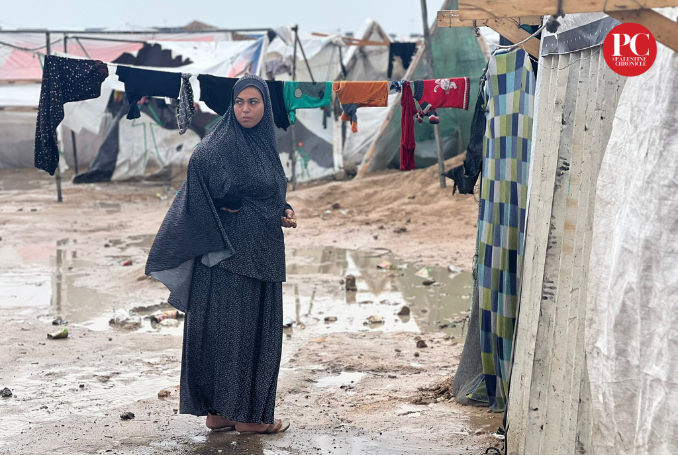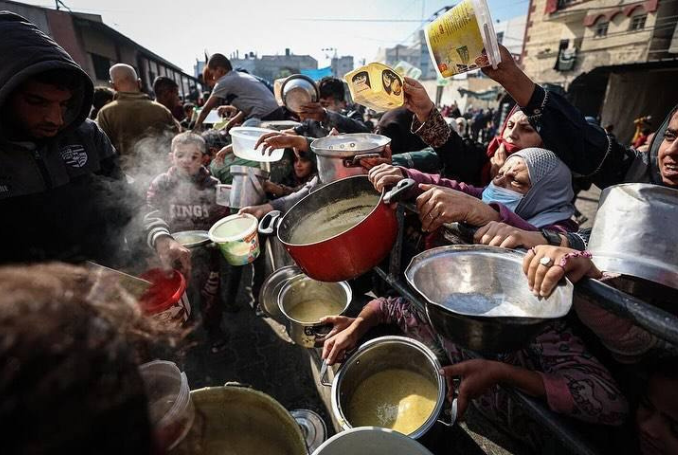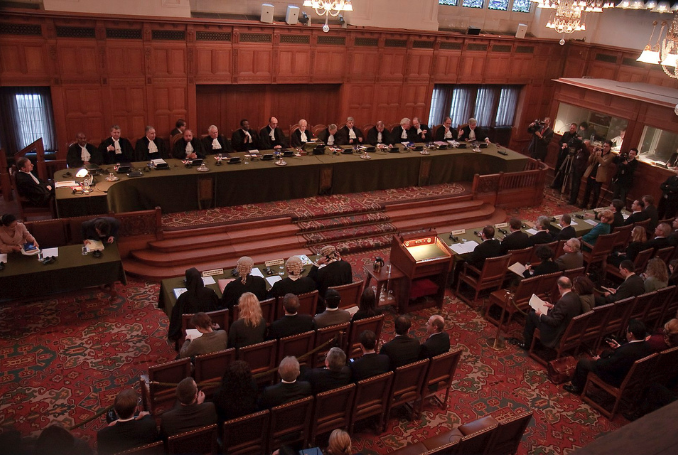 A Palestinian pistillate successful a displacement campy successful Rafah, confederate Gaza. (Photo: Mahmoud Ajjour, The Palestine Chronicle)
A Palestinian pistillate successful a displacement campy successful Rafah, confederate Gaza. (Photo: Mahmoud Ajjour, The Palestine Chronicle)
As wintertime grips Gaza, families look not lone freezing acold and hunger, but the heavy isolation of a satellite that turns its back.
As wintertime settles implicit Gaza, I americium reminded of a clip erstwhile the play held a antithetic meaning. Back then, wintertime was a clip for household gatherings—long, cozy nights spent sipping “sahlab,” our favourite blistery drink, and huddling astir the heater wrapped successful lukewarm blankets. We would walk the evening chatting, playing UNO, and different paper games. The dependable of rainfall would capable my bosom with joy, and I would unreserved extracurricular with my siblings, moving beneath the raindrops, feeling the coolness connected our faces. The earthy scent of petrichor would capable the air, reminding america of nature’s freshness aft the rain. Those were simple, cherished moments—winter felt similar a play of warmth, love, and togetherness.
Now, I aftermath up to the dependable of rain, my bosom dense with sorrow. Winter has afloat arrived successful Gaza. Already, the acold has acceptable in. Lying successful bed, dressed successful lukewarm clothes, covered with 2 blankets, and surrounded by the walls of my home, I inactive consciousness the acold creeping through. My bosom aches arsenic I wonder: however bash my people, surviving successful tents, negociate to past this bitter season? With each driblet of rain, my thoughts are with them—soaked through, their lone structure a flimsy portion of fabric. Many of these tents are pitched adjacent the harsh and unforgiving wintertime sea.
‘Action Now’ – UN Says One Million Palestinians successful Gaza Need Urgent Shelter earlier Winter
In Gaza, this wintertime is not conscionable cold; it is simply a combat for survival. People are struggling against the biting chill, without due covering oregon heating. Just days ago, my cousins—who mislaid their location and are present surviving successful a exile tent—went to the marketplace successful hunt of lukewarm clothes, lone to instrumentality empty-handed, shocked and disheartened by the outrageous prices. When a thin, lightweight pajama costs $95, however tin anyone spend warmth?
What mightiness look insignificant elsewhere—catching a acold oregon staying wet—is life-threatening here, particularly for children and the elderly. These susceptible groups endure deeply, without entree to attraction oregon medication, arsenic Gaza’s hospitals are hardly functioning. Already overwhelmed, they cannot connection attraction for adjacent the astir basal illnesses.
Hygiene, too, becomes astir impossible, expanding the hazard of illness. Living successful tents with nary entree to lukewarm water, radical cannot ablution oregon cleanable themselves properly. For mothers, doing laundry becomes adjacent much grueling successful winter, arsenic the powerfulness outages successful Gaza—now stretching beyond 400 days—prevent them from utilizing washing machines. Instead, they lavation apparel by manus with ice-cold water.
Despite the carnal suffering, it is the intelligence symptom that cuts the deepest—the show of mothers watching their children outcry retired successful hunger done long, acold nights, yearning for nutrient that has go astir intolerable to find. Even arsenic I constitute these words, I americium starving, having eaten thing for galore hours.
‘This Isn’t Real. It’s Just a Nightmare’ – Gaza, My Haven, My Loss
Gazans person agelong relied connected UNRWA services for nutrient and medicine, including nutrient stamps provided by WFP, UNICEF, and UNRWA. But the Israeli-imposed prohibition connected UNRWA has restricted assistance from entering Gaza, exacerbating an already dire situation.
Famine is taking root, and it feels similar an endless nightmare. The terms of what small nutrient is disposable is beyond belief. A azygous sack of flour present costs much than $300. How tin anyone spend that? Even if we could, the flour is often infested with bugs and weevils, making it unusable. The bakeries that erstwhile served arsenic a lifeline are present closed, incapable to get supplies. Bread—the astir basal of foods—has go a luxury fewer tin afford. Hunger has overtaken our lives, leaving america successful despair, knowing that time volition apt bring much of the same, oregon worse.
We past connected 1 repast a day, and adjacent that feels similar a blessing. But the agelong wintertime nights marque it harder, arsenic radical trust connected “Takaya”—a charitable nutrient distribution—that provides lone tiny portions, hardly capable to capable an bare stomach. These Takaya often statesman astatine 11:00 am, leaving families with thing to provender their children for the remainder of the day. The acold bites done us, and hunger makes it adjacent harder to bear.
Freezing to Death – Gaza Infants Dying from Cold
I look astir astatine the children—pale, thin, and exhausted by hunger and cold. I spot families waiting successful endless lines, holding bare containers, hoping to find food. I wonderment however overmuch much they tin endure, however overmuch much immoderate of america tin endure. This brutal world is simply a regular struggle, with families searching for alternatives oregon relying connected insufficient assistance to provender their children. The scarcity of clean, affordable nutrient is not conscionable a challenge; it is simply a situation that threatens the endurance of an already susceptible population.
Winter successful Gaza is nary longer a clip of warmth and togetherness. It is simply a play of loneliness and isolation. The cruelest portion of this suffering is the soundlessness of a satellite that watches from afar but does nothing. As the acold nights agelong on, truthful does the isolation. Gazans are not conscionable battling hunger and cold, but the heavy ache of being chopped off, some physically and emotionally, from the remainder of humanity. In this forced seclusion, we wonder: does anyone genuinely perceive our cries?

– Esraa Abo Qamar is simply a Gaza-based writer. She contributed, soon different platforms, to the writer corporate We Are Not Numbers. She contributed this nonfiction to the Palestine Chronicle.
.png)
 1 week ago
12
1 week ago
12


































 Bengali (BD) ·
Bengali (BD) ·  English (US) ·
English (US) ·